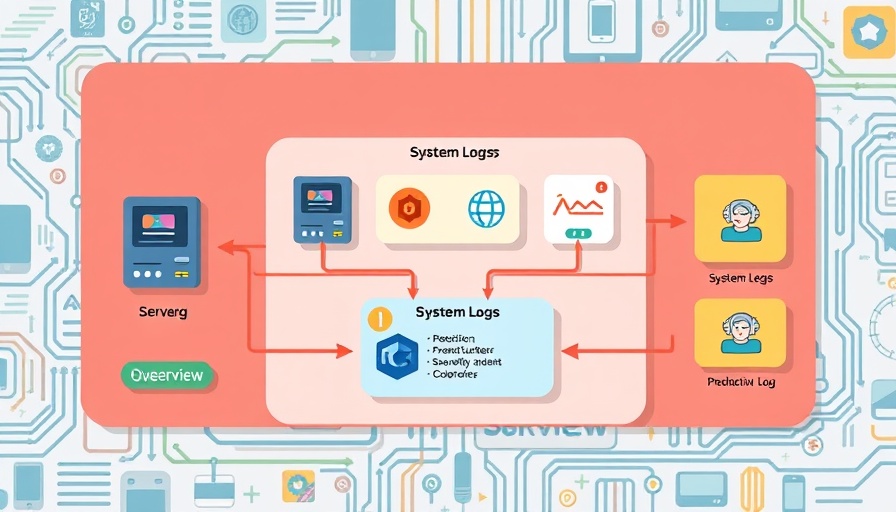
Unlocking Potential: The Power of Google's Regression Language Model
In an age where data drives decisions, Google AI’s new Regression Language Model (RLM) framework heralds a significant shift in how small and medium-sized businesses can predict industrial system performance. The traditional methods of performance prediction using complex tabular data and exhaustive feature engineering have been limiting, often making adaptations cumbersome and time-consuming. With RLM, businesses now have a powerful tool that can harness raw text data, making predictions easier and more intuitive.
Bridging the Gap in Industrial Predictions
The challenge of accurately predicting performance in large industrial systems has long been a thorn in the side of operations managers. The intricacies of dealing with diverse data sources—such as logs, configurations, and workload profiles—often lead to increased costs and extended downtimes. Google’s solution to this problem lies in transforming these disparate data points into structured text formats, allowing for direct input into the Regression Language Model. The result is a seamless transition from raw text to actionable performance metrics.
A New Way to Think About Data: Text-to-Text Regression
What makes the RLM truly revolutionary is its text-to-text approach to regression. By treating system performance predictions as a generation task, businesses can utilize input strings formatted in familiar syntaxes like YAML or JSON. This method eliminates the need for predefined feature sets and rigid data structures, paving the way for a more dynamic and adaptable analysis. By reducing the templates and models that were once necessary, small and medium-sized businesses can respond to changes in workload and hardware configurations with agility.
Efficiency at Its Best: Technical Insights into RLM
Google’s RLM employs a concise encoder-decoder model with only 60 million parameters, a design that retains efficiency while maintaining accuracy. The model’s unique architecture allows for training starting from random initialization, which is particularly beneficial for businesses that need to adapt quickly with few training examples. By tokenizing numeric outcomes in creative ways—such as using mantissa-sign-exponent coding—Google optimizes the model's processing abilities, allowing it to handle lengthy input texts without sacrificing performance. This becomes crucial in a world where data grows exponentially.
Adaptability: A Game Changer for Your Operations
Small to medium enterprises stand to benefit significantly from RLM’s few-shot adaptation capabilities. Businesses can fine-tune their RLMs with just a handful of examples, transforming their operational response times from weeks into mere hours. As companies evolve, this rapid adaptability ensures that performance predictions remain relevant, timely, and actionable. No longer will businesses find themselves trapped in outdated performance predictions that reflect yesterday’s data.
Real-World Implications: Shaping the Future of Business Performance
With the adoption of Google’s RLM, a new landscape of industrial performance analytics emerges. The ability to predict efficiency metrics—such as the Millions of Instructions Per Second per Google Compute Unit (MIPS)—equips enterprises to make informed decisions regarding their operational strategies. As industries continue to embrace AI developments, those who leverage tools like RLM will find themselves ahead of the curve, poised to tackle the challenges of the modern economic environment.
Conclusion: Driving Success Through Innovation
As technology advances, it is crucial for small and medium-sized businesses to remain agile and informed. Google's Regression Language Model presents an exciting opportunity for companies looking to enhance their operational efficiency without the heavy overhead typically associated with traditional data processing methods. By embracing this innovative framework, businesses can position themselves not only to survive but to thrive in an increasingly competitive landscape.
Ready to transform the way your business predicts performance? Discover how RLM can elevate your operational strategies today!
 Add Row
Add Row  Add
Add 



Write A Comment